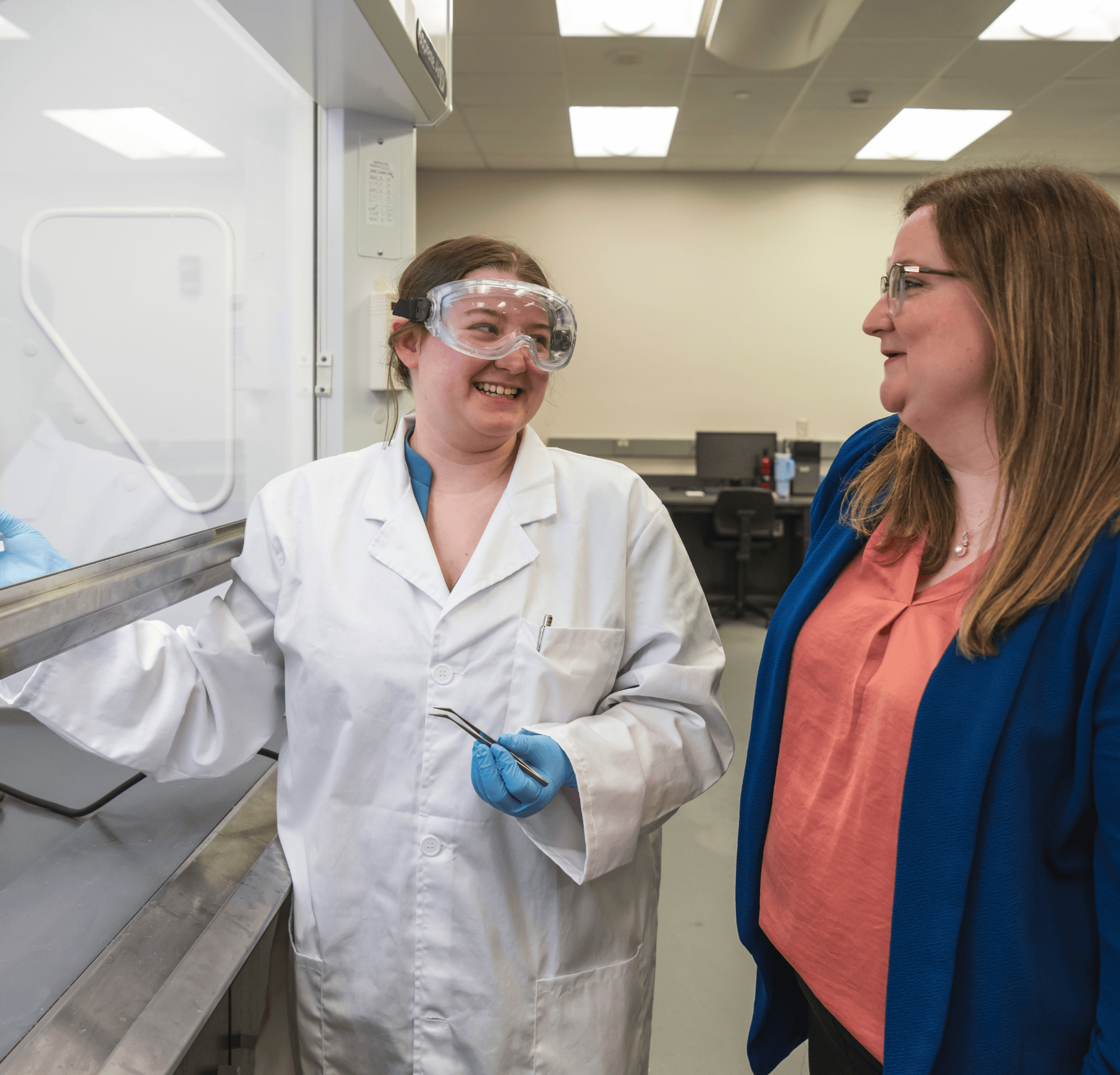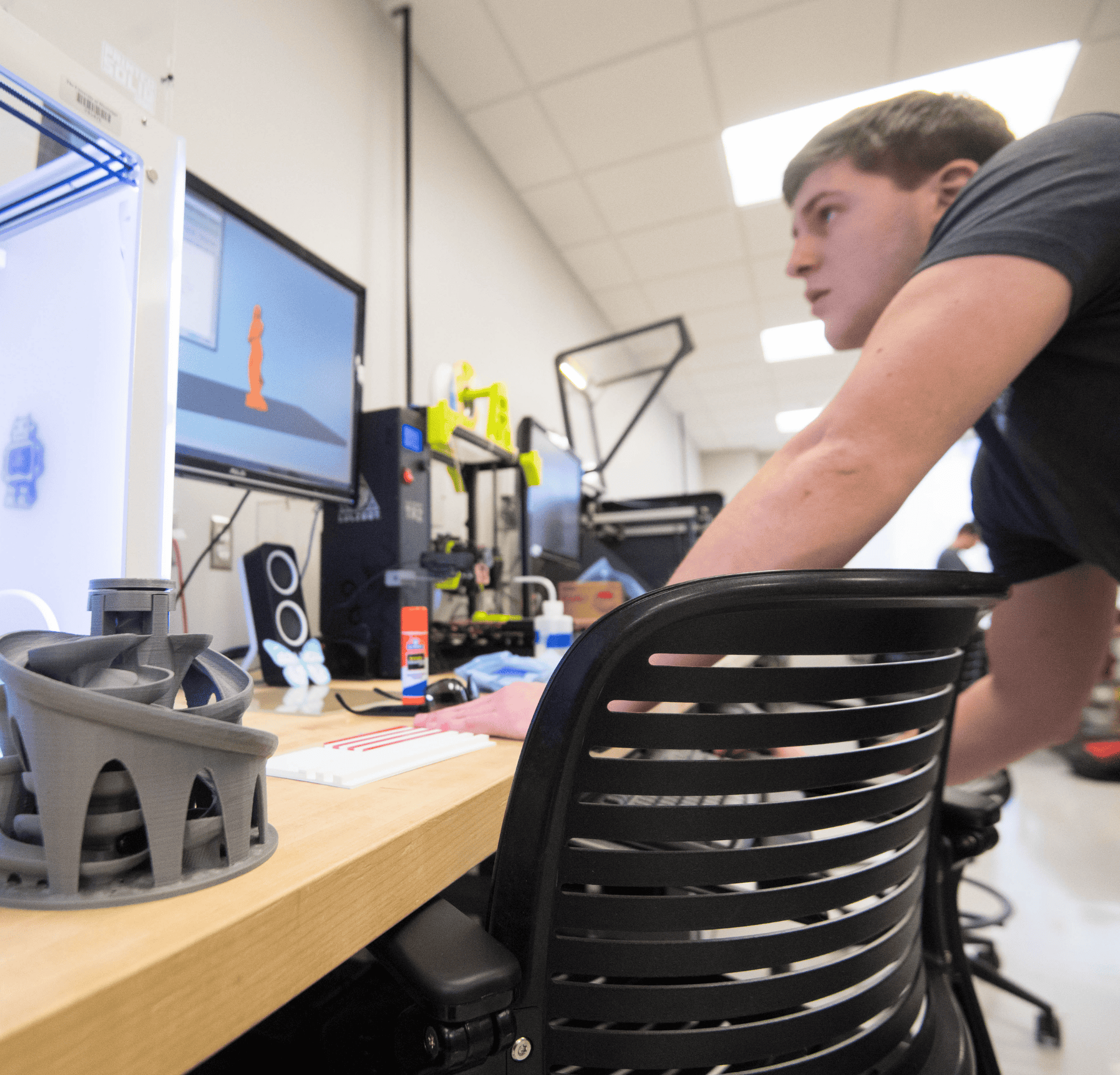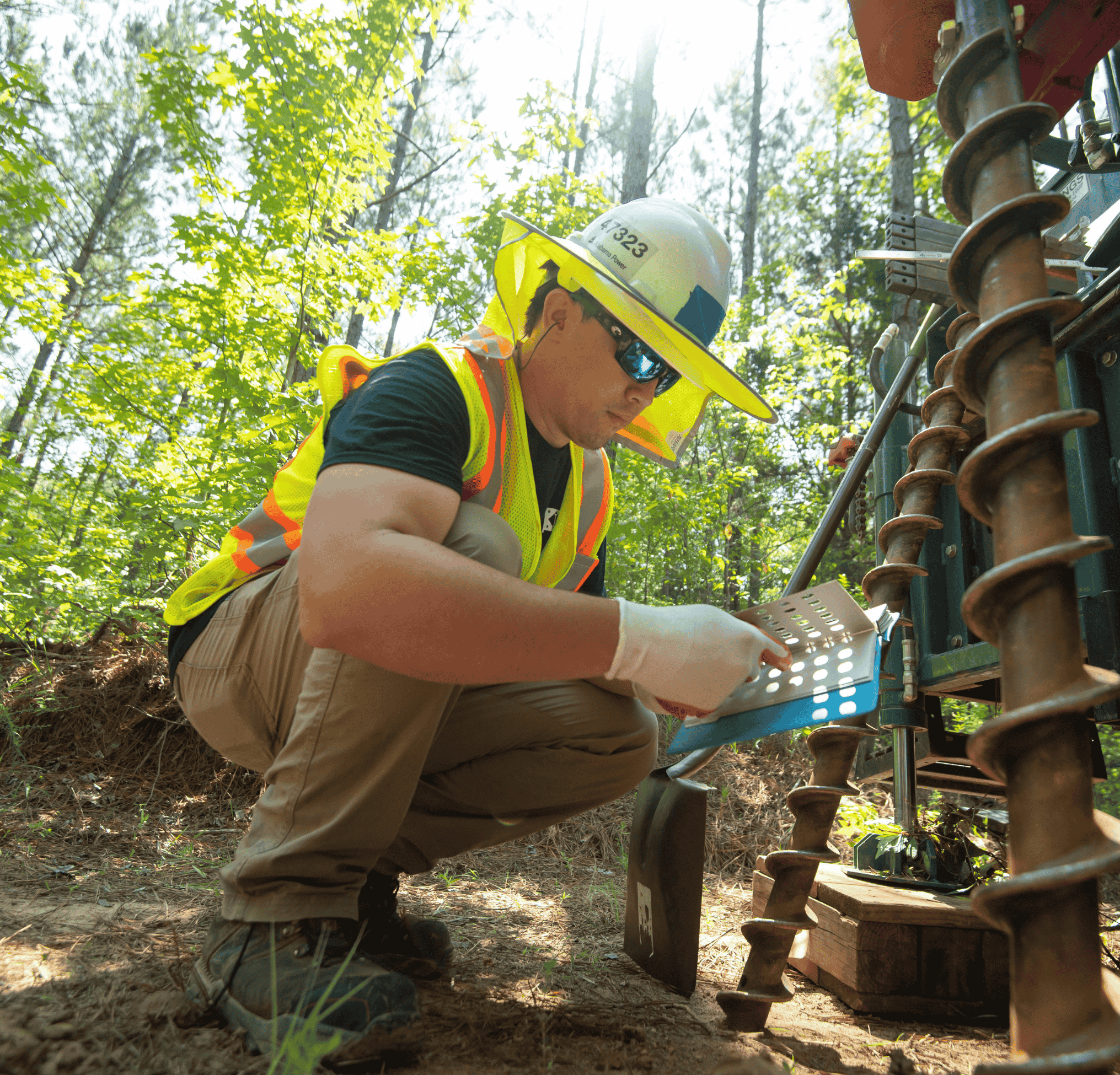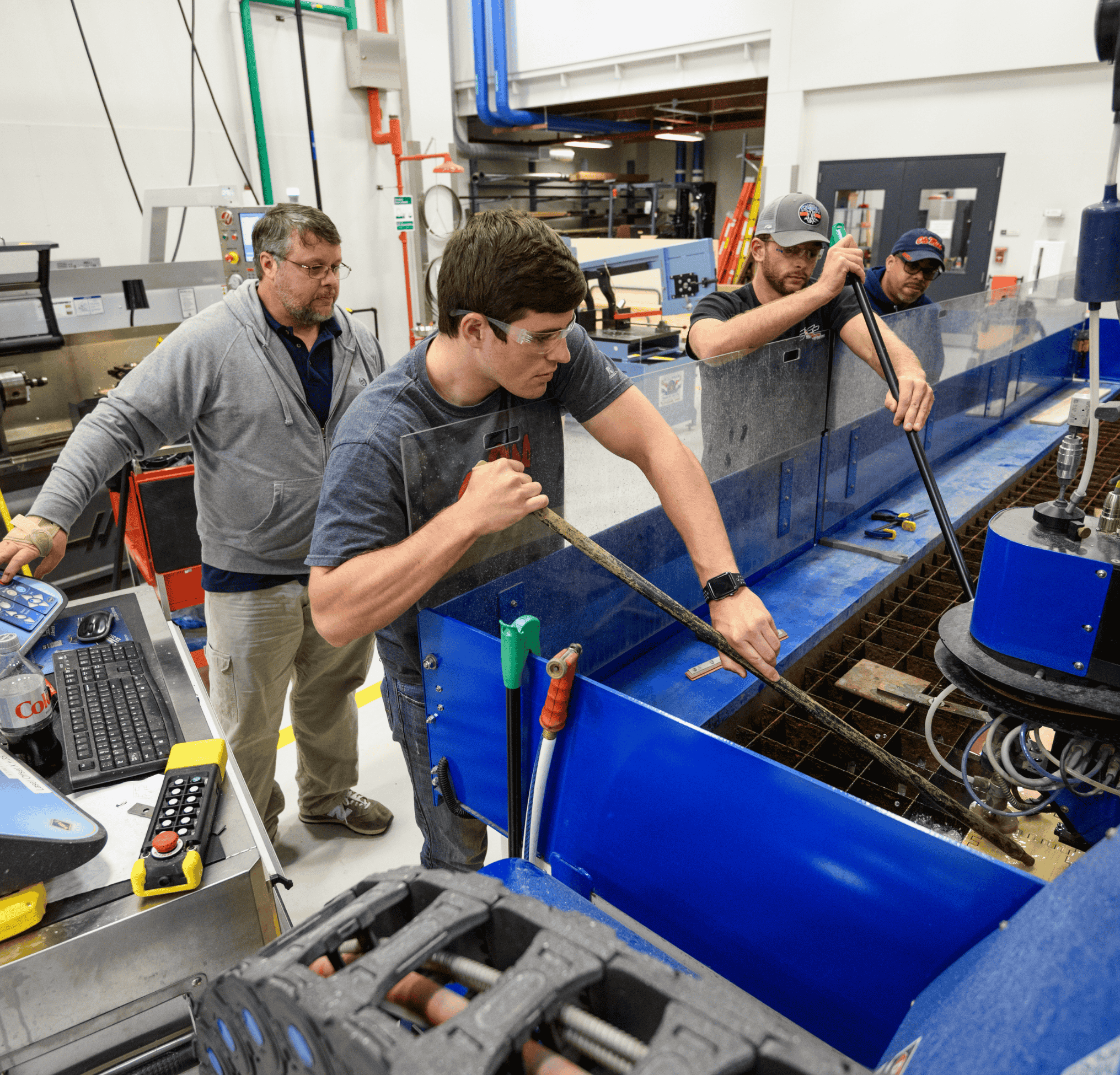Engineering Research Centers and Institutes
The research centers within the School of Engineering focus on solving real-world challenges through innovation, interdisciplinary collaboration, and industry partnerships.

Advancing Engineering Research & Innovation
The University of Mississippi School of Engineering is home to specialized research centers dedicated to advancing knowledge and driving innovation across a range of engineering disciplines. From computational hydroscience to advanced materials and medical technology, these centers provide valuable expertise, support groundbreaking research, and create real-world impact.
Our innovative centers

Center for Diagnostics, Design, Devices and Biomechanics (CD3B)
CD3B connects science, medicine, and engineering to advance the development of modern medical technology and devices, as well as new surgical approaches and practices. Engineering faculty collaborate with other university professors and industry experts to create innovative solutions that benefit the people of Mississippi and beyond.

Center for Graphene Research and Innovation (CGRI)
CGRI bridges the gap between university-based research and industry-led innovations for graphene, a form of carbon made of a single layer of atoms. Graphene's exceptional strength, flexibility, and conductivity lend it to a broad range of applications, from infrastructure to electronics and medicine. CGRI collaborates with top research institutions and experts to explore potential military and civilian applications for graphene, such as enhancing the durability of asphalt and concrete.

Mississippi Mineral Resources Institute (MMRI)
MMRI provides expertise to both the public and private sectors, supporting responsible decisions about Mississippi’s and the nation’s mineral resources and environmental well-being. The institute’s offshore branch, the Center for Marine Resources and Environmental Technology (CMRET), conducts rigorous studies of seafloor ecological conditions and fosters research and development of marine engineering systems in collaboration with academic, government, and industry partners.

National Center for Computational Hydroscience and Engineering (NCCHE)
NCCHE fosters the growth of research in computational hydroscience and engineering to conserve soil and water, model impacts of failure of dams and/or levees, and develop tools to assist researchers and scientists in the field. For example, it has developed software that quickly calculates the spread of floodwater in case of dam or levee breaches.
